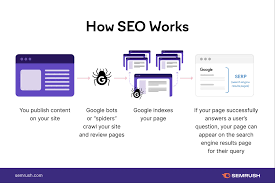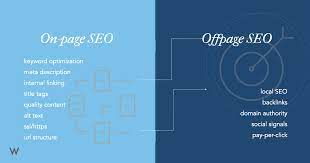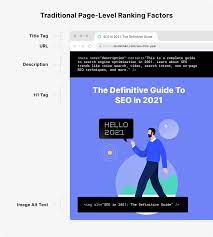The Power of Yandex SEO
The Power of Yandex SEO
When it comes to search engine optimisation, Google is often the first name that comes to mind. However, in certain regions like Russia and other CIS countries, Yandex reigns supreme as the search engine of choice. Understanding and utilising Yandex SEO can be crucial for businesses targeting audiences in these regions.
What is Yandex?
Yandex is a Russian multinational corporation that operates the largest search engine in Russia, with over 60% market share in the country. It offers a wide range of services beyond search, including maps, translation, cloud storage, and more. For businesses looking to establish a strong online presence in Russia and neighbouring countries, optimising for Yandex is essential.
Key Differences with Google SEO
While many principles of SEO apply to both Google and Yandex, there are some key differences to consider. For example, Yandex places a higher emphasis on the domain age and domain name relevance compared to Google. Additionally, keyword density and meta tags play a more significant role in Yandex’s ranking algorithm.
Tips for Optimising for Yandex
- Keywords: Conduct thorough keyword research using Yandex-specific tools to identify high-value keywords for your target audience.
- Meta Tags: Pay close attention to meta tags such as title tags and meta descriptions as they carry significant weight in Yandex’s algorithm.
- Content: Create high-quality, original content that incorporates relevant keywords naturally throughout the text.
- Backlinks: Build a diverse backlink profile from reputable sources to improve your site’s authority in the eyes of Yandex.
- User Experience: Ensure your website is user-friendly with fast loading times and mobile responsiveness.
The Importance of Localisation
In addition to language considerations, localisation plays a crucial role in Yandex SEO. Tailoring your website content to reflect local customs, preferences, and trends can significantly boost your visibility on the platform. This includes using localised keywords, addresses, phone numbers, and currency where applicable.
In Conclusion
Mastering Yandex SEO requires a nuanced understanding of its unique ranking factors and algorithms. By implementing targeted strategies tailored to the platform’s requirements, businesses can enhance their visibility and reach their desired audience effectively in Russia and surrounding regions.
Exploring Yandex SEO: Top 19 Frequently Asked Questions
- Why is Yandex so popular?
- Does Google use Yandex?
- Is Yandex connected to Google?
- Is Google better than Yandex?
- Is Yandex a Russian site?
- Is Yandex more popular than Google?
- Why is Yandex so good?
- Is Yandex faster than Google?
- Why is Yandex the best search engine?
- What is better Google or Yandex?
- How good is Yandex search engine?
- How do you do Yandex SEO?
- Is Yandex Russian Google?
- What is the difference between Yandex and Google?
- Is Yandex bigger than Google in Russia?
- Which is better Google or Yandex?
- Does SEO optimization really work?
- Is Yandex only for Russia?
- What is Yandex SEO?
Why is Yandex so popular?
Yandex’s popularity can be attributed to several factors that set it apart as a preferred search engine, particularly in Russia and CIS countries. One key reason for Yandex’s popularity is its deep understanding of the local language and culture, allowing it to provide more relevant search results tailored to users in these regions. Additionally, Yandex offers a wide range of services beyond search, such as maps, translation, and cloud storage, making it a comprehensive platform for users’ digital needs. The emphasis on domain age, domain name relevance, and keyword density in Yandex’s ranking algorithm also plays a role in its popularity among businesses looking to optimise their online presence for the Russian market. Overall, Yandex’s commitment to localisation, user experience, and diverse service offerings contributes to its widespread appeal and dominance in its target regions.
Does Google use Yandex?
The frequently asked question regarding Yandex SEO, “Does Google use Yandex?” often arises due to the distinct roles of these two search engines. Google and Yandex are separate entities, each with its own algorithms, indexing systems, and user bases. While Google is widely used globally and dominates many markets, including the UK and the US, Yandex is primarily focused on serving users in Russia and neighbouring countries. Therefore, Google does not use Yandex as its search engine; they operate independently to cater to their respective audiences and regions.
Is Yandex connected to Google?
In the realm of search engines, Yandex and Google operate as distinct entities with no direct connection between them. While both platforms serve as popular search engines, Yandex is a Russian-based search engine that primarily caters to users in Russia and other CIS countries, while Google is a multinational giant with a global reach. Each search engine has its algorithms, ranking factors, and user interfaces tailored to their specific audiences. Therefore, businesses aiming to enhance their online presence in regions where Yandex holds sway should focus on optimising for Yandex’s unique SEO requirements rather than assuming any direct link or integration between Yandex and Google.
Is Google better than Yandex?
When comparing Google to Yandex, the question of which search engine is better often arises. While Google is a dominant force globally and is widely used in many countries, including the UK, Yandex holds significant market share in Russia and other CIS countries. The answer to whether Google is better than Yandex depends on the context of the user’s target audience and geographical focus. Google’s algorithm is known for its complexity and sophistication, while Yandex has its unique ranking factors that cater specifically to the Russian-speaking audience. Ultimately, businesses aiming to reach audiences in Russia may find that optimising for Yandex is more beneficial, whereas those targeting a more global audience might favour Google’s broader reach and user base.
Is Yandex a Russian site?
Yes, Yandex is indeed a Russian site. Founded in 1997 by Arkady Volozh and Ilya Segalovich, Yandex is a Russian multinational corporation that operates the largest search engine in Russia. With over 60% market share in the country, Yandex has established itself as the go-to search engine for users in Russia and other CIS countries. Its headquarters are located in Moscow, further solidifying its Russian roots. Understanding Yandex’s origin and its dominance in the Russian online landscape is essential for businesses looking to effectively navigate the world of Yandex SEO and reach their target audience in this region.
Is Yandex more popular than Google?
The question of whether Yandex is more popular than Google depends on the geographical context. In Russia and other CIS countries, Yandex holds a dominant position as the preferred search engine, with over 60% market share in Russia alone. In these regions, Yandex is often considered more popular than Google due to its tailored services and localised approach. However, on a global scale, Google remains the most widely used search engine, commanding a significant market share worldwide. Each search engine has its strengths and popularity in different regions, making it essential for businesses to understand and optimise for both platforms to reach their target audiences effectively.
Why is Yandex so good?
Yandex stands out as a powerful search engine, particularly in regions like Russia and CIS countries, due to several key factors. One reason for Yandex’s effectiveness is its deep understanding of the local language and culture, allowing it to provide more relevant search results tailored to the specific needs of users in those regions. Additionally, Yandex’s algorithm places importance on factors such as domain age, domain name relevance, and keyword density, which can benefit websites optimised specifically for the platform. The search engine’s comprehensive suite of services beyond search, including maps, translation, and cloud storage, further enhances its appeal and utility to users. Overall, Yandex’s focus on localisation and user-centric features contributes to its reputation as a preferred choice for those seeking information online in Russian-speaking territories.
Is Yandex faster than Google?
In the realm of search engines, the speed at which results are delivered is a crucial factor for user experience. When comparing Yandex to Google in terms of speed, it’s important to note that both search engines have their own algorithms and infrastructure that impact the speed of delivering search results. While some users may perceive Yandex to be faster than Google in certain instances due to regional factors or individual browsing experiences, overall speed comparisons between the two search engines can vary depending on numerous factors such as location, network conditions, and server responsiveness. Ultimately, the perceived speed of Yandex versus Google may differ for each user based on their specific context and usage patterns.
Why is Yandex the best search engine?
Yandex is often regarded as the best search engine in certain regions, particularly in Russia and the CIS countries, due to its dominant market share and tailored approach to local search needs. As the largest search engine in Russia, Yandex understands the nuances of the local language, culture, and user preferences, allowing it to deliver more relevant search results for users in these regions. With a focus on factors like domain age, domain name relevance, and keyword density, Yandex’s algorithm is designed to prioritise content that resonates with its Russian-speaking audience. This targeted approach makes Yandex a preferred choice for businesses looking to establish a strong online presence in these markets.
What is better Google or Yandex?
When comparing Google and Yandex, the choice of which search engine is better largely depends on the target audience and geographical location of the user. Google is widely used globally and is a dominant force in many markets, offering a vast array of services beyond search. On the other hand, Yandex holds a strong presence in Russia and neighbouring countries, providing tailored services and search results for users in that region. For businesses targeting audiences in Russia or CIS countries, prioritising Yandex SEO can be more beneficial due to its market dominance and specific ranking factors. Ultimately, the decision between Google and Yandex comes down to understanding the unique needs of the target audience and crafting SEO strategies accordingly.
How good is Yandex search engine?
When evaluating the effectiveness of the Yandex search engine, it is important to consider its dominance in regions like Russia and CIS countries where it holds a significant market share. Yandex is renowned for its tailored approach to search results, prioritising local content and language nuances that cater to its user base. Businesses targeting audiences in these regions often find success by optimising for Yandex’s unique ranking factors and algorithms. While Yandex may not have the global reach of Google, its emphasis on domain age, domain name relevance, and keyword density make it a powerful tool for businesses aiming to establish a strong online presence in Russian-speaking markets.
How do you do Yandex SEO?
To effectively implement Yandex SEO, it is essential to understand the unique ranking factors and algorithms that govern the search engine. Key aspects include conducting thorough keyword research using Yandex-specific tools, optimising meta tags such as title tags and meta descriptions, creating high-quality and keyword-rich content, building a diverse backlink profile, and ensuring a user-friendly website experience. Localisation also plays a crucial role in Yandex SEO, requiring businesses to tailor their content to reflect local customs and preferences. By following these targeted strategies and adhering to Yandex’s specific requirements, businesses can enhance their online visibility and reach their target audience effectively in regions where Yandex is dominant.
Is Yandex Russian Google?
In the realm of search engines, a common query arises: Is Yandex the Russian equivalent of Google? While both Yandex and Google are prominent search engines, with Google dominating globally and Yandex holding sway in Russia and neighbouring countries, they each have their unique features and algorithms. Yandex is often referred to as the “Russian Google” due to its popularity in the region, but it offers distinct functionalities tailored to the Russian language and culture. Understanding the nuances between Yandex and Google is essential for businesses aiming to optimise their online presence effectively in different markets.
What is the difference between Yandex and Google?
One frequently asked question regarding Yandex SEO is, “What is the difference between Yandex and Google?” While both Yandex and Google are popular search engines, they have distinct algorithms and ranking factors. Yandex, being the dominant search engine in Russia and CIS countries, places a higher emphasis on domain age, domain name relevance, keyword density, and meta tags compared to Google. Understanding these differences is essential for businesses targeting audiences in regions where Yandex holds sway, as it influences how websites are optimised for better visibility and search engine rankings.
Is Yandex bigger than Google in Russia?
In the realm of search engines in Russia, Yandex holds a dominant position, surpassing Google in terms of market share and popularity. With over 60% of the search engine market in Russia under its belt, Yandex is undeniably a powerhouse in the region. While Google remains a significant player globally, when it comes to catering to Russian audiences and businesses, Yandex’s stronghold is evident, making it a crucial platform for those looking to optimise their online presence effectively in the Russian market.
Which is better Google or Yandex?
When comparing Google and Yandex, the question of which search engine is better ultimately depends on the target audience and geographical location. Google is widely known as the dominant search engine globally, offering a vast reach and sophisticated algorithms. On the other hand, Yandex holds significant influence in Russia and CIS countries, providing tailored services for users in these regions. Businesses targeting audiences in Russia may find Yandex to be more effective due to its understanding of local nuances and preferences. Ultimately, the choice between Google and Yandex comes down to the specific goals and target markets of each individual business.
Does SEO optimization really work?
In the realm of Yandex SEO, a common query that arises is, “Does SEO optimization really work?” The answer lies in the fundamental principle that SEO optimisation, when executed effectively and strategically, can indeed yield tangible results. By aligning your website with the search engine’s ranking factors and user preferences, you can enhance your online visibility, attract targeted traffic, and ultimately improve your website’s performance. Through diligent keyword research, content creation, technical optimisation, and ongoing monitoring and adjustments, SEO optimisation has the potential to drive organic growth and deliver long-term benefits for your online presence.
Is Yandex only for Russia?
Yandex, the largest search engine in Russia, is not exclusive to the country. While Yandex does dominate the Russian search market with over 60% market share, it also serves users in other CIS countries like Belarus, Kazakhstan, and Ukraine. Businesses targeting audiences in these regions can benefit significantly from optimising their online presence for Yandex. Understanding the nuances of Yandex SEO and tailoring strategies to cater to these diverse markets can help businesses expand their reach beyond Russia and tap into a broader audience base across the CIS region.
What is Yandex SEO?
Yandex SEO refers to the practice of optimising websites and online content specifically for the Yandex search engine, which is the dominant search engine in Russia and other CIS countries. This specialised form of SEO involves implementing strategies to improve a website’s visibility and ranking on Yandex’s search results pages. Key factors in Yandex SEO include domain age, domain name relevance, keyword density, meta tags, and localisation to cater to the preferences of users in the region. Understanding and utilising Yandex SEO techniques are essential for businesses targeting audiences in Russian-speaking markets to enhance their online presence effectively.








